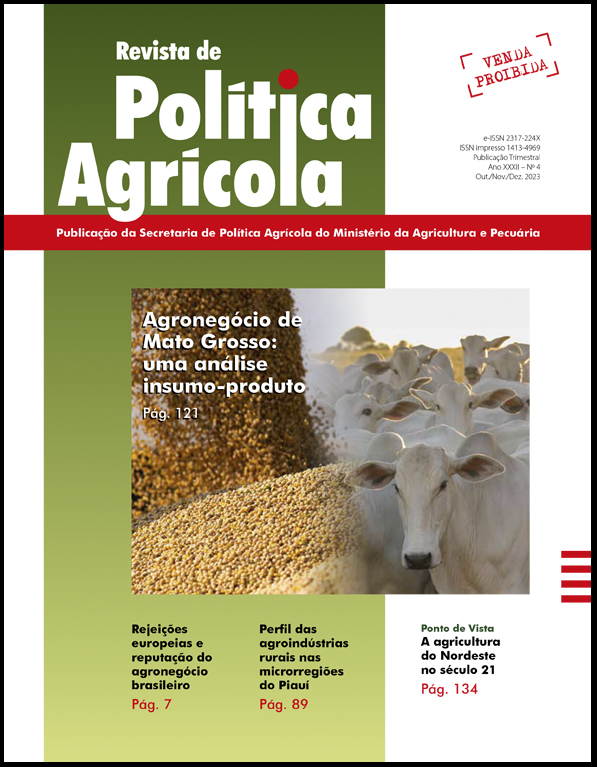Rural credit and default by farmers in the Curu Valley, Ceará
Keywords:
Family farming, discriminant analysis, Pronaf, logistic regression.Abstract
Family agriculture has a large participation in the social and economic development, due to the creation of jobs, income distribution and food supply in the domestic market, which justifies the farmer´s permanence in the countryside. Despite the offered advantages, default has affected the rural credit financing, resulting in the inability of producers to transact capital. In this perspective, the objective of this study was to analyze the factors influencing the default by coconut farmers with the group B of the national program for the strengthening of family farming (Programa Nacional de Fortalecimento da Agricultura Familiar -Pronaf B), for the period of 2019, in the municipality of São Luís do Curu, in Ceará state, Brazil. Primary data were used from questionnaires applied to 151 coconut producers who used the Pronaf B. The binomial logit model was used to analyze the probability of delaying payments to the Pronaf program and, subsequently, the discriminant analysis technique was applied for the classification of farmers into compliants and defaulters. The results showed that both the logistic regression and the discriminant analysis were efficient, in which the variables sex, land, family allowance, income and area were significant and affected the default of the producers of the municipality.Downloads
Published
2024-05-07
How to Cite
Moura, N. S. C. P., Campos, K. C., & Tabosa, F. J. S. (2024). Rural credit and default by farmers in the Curu Valley, Ceará. Revista De Política Agrícola, 32(4), 77. Retrieved from https://rpa.sede.embrapa.br/RPA/article/view/1890
Issue
Section
Artigos Científicos

